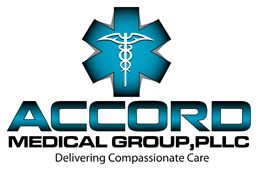Idiopathic Hypersomnia - Sleeping 10+ hours
Introduction
Anatomy
In a way, your body goes on “auto-pilot” while you sleep. Your brain regulates automatic functions for you, such as breathing, heart rate, and blood pressure. The average adult needs about eight hours of healthy sleep. Although sleep is a complex process that is not fully understood, it is known that a good night’s sleep is important for optimal health and functioning.
Causes
Idiopathic hypersomnia causes people to sleep a long time during the night. People may sleep more than 10 hours a night. Despite such long periods of sleep, people with idiopathic hypersomnia feel very sleepy during the day. No matter how much they nap during the day, they still feel very sleepy. This condition can be very disabling, limiting a person’s ability to maintain employment, relationships, and quality of life.
Symptoms
The main symptom of idiopathic hypersomnia is prolonged sleeping at night. You may sleep 10 hours or more on a regular basis. Despite sleeping so long at night, you feel very sleepy during the day. You may take numerous naps but still feel sleepy after the nap. Upon awakening, you may not feel alert. You may feel confused or still asleep. You may have difficulty maintaining employment, relationships, and responsibilities because of excessive daytime sleepiness.Diagnosis
You may be referred to other specialists, such as a neurologist, psychiatrist, or sleep medicine doctor. A clinical sleep study may be conducted to learn more about how your body functions while you sleep. A Multiple Sleep Latency Test evaluates how long it takes you to fall asleep for daytime naps and is a measure of daytime sleepiness. A polysomnogram is used to identify a variety of sleep disorders. This test measures your heart rate, airflow, breathing movements, brain waves, and body movements. It is helpful for identifying a variety of sleep problems.
Treatment
Prevention
Am I at Risk
Because the exact cause of idiopathic hypersomnia is unknown, specific risk factors have not been identified. The condition appears to run in families. You should contact your doctor if you sleep more than 10 hours during the night and feel excessively sleepy during the day.Complications
Idiopathic hypersomnia can be a very debilitating condition. It can interfere with employment pursuits, relationships, and daily activities. Daytime sleepiness can be dangerous. You should not drive or operate machinery when you feel tired.Advancements

Copyright © - iHealthSpot Interactive - www.iHealthSpot.com
This information is intended for educational and informational purposes only. It should not be used in place of an individual consultation or examination or replace the advice of your health care professional and should not be relied upon to determine diagnosis or course of treatment.
The iHealthSpot patient education library was written collaboratively by the iHealthSpot editorial team which includes Senior Medical Authors Dr. Mary Car-Blanchard, OTD/OTR/L and Valerie K. Clark, and the following editorial advisors: Steve Meadows, MD, Ernie F. Soto, DDS, Ronald J. Glatzer, MD, Jonathan Rosenberg, MD, Christopher M. Nolte, MD, David Applebaum, MD, Jonathan M. Tarrash, MD, and Paula Soto, RN/BSN. This content complies with the HONcode standard for trustworthy health information. The library commenced development on September 1, 2005 with the latest update/addition on February 16, 2022. For information on iHealthSpot’s other services including medical website design, visit www.iHealthSpot.com.

